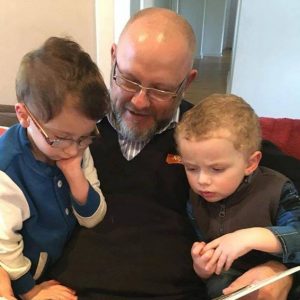 One of the most important things we can do as a parent is raise our children to be confident. With confidence they are better equipped to deal with the challenges that life brings. We all want our kids to be confident and motivated to do their best. How can we support them to develop confidence and motivation as they grow and learn? Children are naturally curious. Supporting children’s natural curiosity and allowing them to explore helps them learn, become confident and develop a sense of self. This helps children do their best both now and in the future.
One of the most important things we can do as a parent is raise our children to be confident. With confidence they are better equipped to deal with the challenges that life brings. We all want our kids to be confident and motivated to do their best. How can we support them to develop confidence and motivation as they grow and learn? Children are naturally curious. Supporting children’s natural curiosity and allowing them to explore helps them learn, become confident and develop a sense of self. This helps children do their best both now and in the future.
Children learn through exploring their environment. Babies touch, taste, look at and listen to everything in their reach. As they explore your child learns that they can influence their environment by making things happen, such as making a noise when they bang or shake something, or making something move when they push it. Giving babies an opportunity to safely explore allows them to develop a sense of having control over things around them.
As children get older they realise they can learn from others and begin to ask questions. The endless questions of pre-schoolers can be wearing but patiently responding to your child’s curiosity helps your child become a confident learner and develop problem solving skills. Curiosity and confidence means your child will try new things. As children see that they can affect their world and the people around them they feel capable and develop a sense of having control. Confident children are motivated to try more things. This means they learn more, interact with more people and develop better relationships. This helps their learning now and in the future.
 Parents and carers can help children develop confidence and motivation by:
Parents and carers can help children develop confidence and motivation by:
- Responding in a warm and supportive way to a child’s communication
- Answering questions honestly
- Learning together when you don’t know the answers to your child’s questions
- Asking your child questions to help them think and problem solve
- Providing a safe, stimulating environment and allowing children to explore freely
- Supporting your child when they need it
- Giving appropriate freedom as they develop confidence to do things on their own
- Showing your child it is Ok to make mistakes
- Giving your child honest feedback about the good and not so good things they do
- Encouraging your child to talk through feelings, problems and experiences
- Praising efforts, not just achievements
- Showing your child that learning is fun!
Praise and encouragement is often used by adults when they want to motivate children to do things, learn new skills or develop more confidence. Are there right and wrong ways to praise children? Is praising children always a useful thing to do?
Babies do things for the sheer enjoyment of exploring and learning through their senses. As children get older they learn that what they do gets a reaction from adults. Adults in turn want to motivate children to do certain things and so often use praise, rewards and encouragement. Some children are more dependent on praise from adults, while others are more independent and self-directed.
We want to use praise in a way that helps children learn the value of effort and completion of tasks rather than seeking to please adults. This helps them learn to be self-motivated. Praise is most effective when adults are careful to praise specifically and to focus effort and achievement rather than on giving approval. When children seek approval they may give up more easily when things get difficult.
Effective praise is:
- Specific “Well done for putting all your toys away”.
- Focused on effort “You worked very hard to finish that puzzle”.
- Acknowledging of your child’s feelings “You’re excited about being in the concert”.
- Focused on progress “You wrote five more lines than last time”
Ineffective praise is:
- General “Good boy”
- Focused on outcome rather than effort “You finished first”
- Evaluating children “You’re a good singer”.
- Comparing children “Look at how your brother did it”
Using praise effectively can help children learn to focus on effort and working to complete tasks and to keep on trying when things are difficult.
Want to find out more about supporting kids mental health? Check out all the great info at Kids Matter.
Talking Matters provides speech pathology, occupational therapy and psychology services to kids of all ages in Adelaide, South Australia. To find out more about our team and what we do browse our website and see how we can help your family.
There is also more information on our Facebook page, Twitter, or Pinterest.
Related Blog Posts
If you liked this post you may also like:
Follow Our Socials for MORE Ideas
Ready to Write with OT
Using CONNECT 4 To Grow
Talking Matters $20 KMart Challenge



